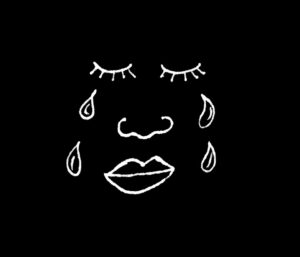
Things Must Change
Story by Nyemadi Louise Dunbar | Photography and Video by D.A. Bullock | Design and Illustration by Melanie Walby


May 25, 2020 saw yet another life of an unarmed Black person taken at the hands of a police department sworn to protect and serve.
The killing of George Floyd in Minneapolis resulted in a fresh wave of grief and activism in a region that has experienced many May 25ths before.
Lloyd Smalley and Lillian Weiss in 1989, Tycel Nelson in 1990, Dominic Felder in 2006, Jamar Clark in 2015 and Philando Castille in 2016 are just a few names that reached headlines following tragic encounters with police in the Twin Cities. Widening the aperture brings into focus Michigan’s Aiyana Jones in 2010, New York’s Eric Garner in 2014, Louisiana’s Alton Sterling in 2016, Texas’ Atatiana Jefferson in 2019 and Kentucky’s Breonna Taylor in 2020.
A handful of lives in a long list of all too familiar stories where the force of police is paired with accountability that is nonexistent, lenient or late.

Five days after protests for justice and peace began to take shape around the country, NASA completed its first test launch of American astronauts to the International Space Station via a commercially built and operated spacecraft.
Two months later in July, NASA’s rover Perseverance began its journey to Mars in hopes of finding signs of life that may have once existed on the red planet.
It is impressive, America’s ability to imagine a world beyond its own Earth. This ability to reach for the moon, explore the stars, and dream of distant worlds. It is with the perseverance of NASA’s rovers and the imagination of scientists and space admirers alike that communities seek to realize their own dreams of community-focused policing and safety.
If we can bend what we know to be true today to make a way for an expansive future in outer space, we can extend that same ability to unearth what it means to have, fund, remove or revamp police departments across the United States — including here in Minneapolis.

The community is asking itself many questions around the future of public safety, but one has rocketed to the forefront:

It’s not a simple question, and there are a wide range of answers. But many in the city seem to agree on this: things must change.


For those seeking dismantlement of the Minneapolis Police Department, it is because they have been here before. 1967, 1990, 2015, 2016, 2017 and 2020 have all seen Minneapolis erupt in protests, flames or both — stemming from an improper use of force by police, the death of an unarmed civilian by police or a lack of criminal conviction in the court of law for police who failed to uphold their duty to protect and serve.
It’s why Minneapolis residents like Desralynn Cole — the president of Minneapolis Urban League’s Young Professional Group and Program Manager for the City of Minneapolis’ ReCAST program stands firm in there being “no time for giving extra chances.” For Desralynn, “the issues are so deep rooted that it’s time to completely deconstruct the entire Minneapolis Police Department.”
Cynthia Gomez of PYC Arts & Tech High School in North Minneapolis echoes this sentiment: “If [the police] could reform themselves, they would have reformed themselves,” she says. “They are doing exactly what they were designed to do, which is to protect property and to shred people in the name of that.”
“How do we transform policing into an extension of the community itself?” asks Pastor Brian Herron of Zion Baptist Church, nestled off of Olson Memorial Highway in North Minneapolis. Brian and others in his neighborhood are looking to create an avenue of reform — believing that the proper checks and balances can result in deep, structural change. We can see this type of change, Pastor Herron says, through bridging a relationship gap. “There’s always ‘us against them’ rather than ‘us working together,’” he says.
“How do we transform policing into an extension of the community itself?”
To Brian, “a complete response” requires law enforcement and community cooperation — cooperation that seems more likely because of the department’s current Chief, Medaria Arradondo, and his administration’s openness to trying new approaches. Many reformers believe that recent MPD policy changes — mandated body cameras in 2014, bias training in 2015 and procedural changes in filing police complaints in 2016 — will bring clarity and accountability to the Minneapolis Police Department, and act as valuable steps in the journey to lasting change.

In June, five Minneapolis City Council members (Jeremiah Ellison, Lisa Bender, Alondra Cano, Cam Gordon and Steve Fletcher) penned an alternative to Minneapolis’ constitutional requirement that the city maintain a minimum police department in line with its population. The plan, which was originally pitched to reach voters’ ballots this November, favored the creation of the Department of Community Safety & Violence Prevention — which would set out to be holistic and public health-oriented in its approach to law enforcement. The Minneapolis Charter Commission, however, voted against the proposal’s placement on 2020 ballots. But the conversation clearly did not end with that vote, and Minneapolis residents may see that proposal (or others like it) on their ballots for the municipal elections in 2021.
Whether they prefer reform or abolition, a consensus is emerging among those envisioning a better, safer future: Only through investing in, caring for and engaging with the community can any system of law enforcement be successful. As Don Samuels, CEO of MicroGrants and a former Minneapolis City Council member, says: “We must take the responsibility to intervene, to intercept, to provide opportunities, to be role models in residence.”
“We must take the responsibility to intervene, to intercept, to provide opportunities, to be role models in residence.”

The systems that a society puts in place can only be as effective and inclusive as the people who dream them up. Should the dreamers harbor ill will for some or favor only a few, so too will our systems.

Minneapolis’ future rests in our ability to learn from our past, then reach for the stars.
Hindsight is 20/20, and soon 2020 will itself be hindsight. Will this difficult year make way for a city reimagined for all, and for the better? That’s up to us.


Contributors





